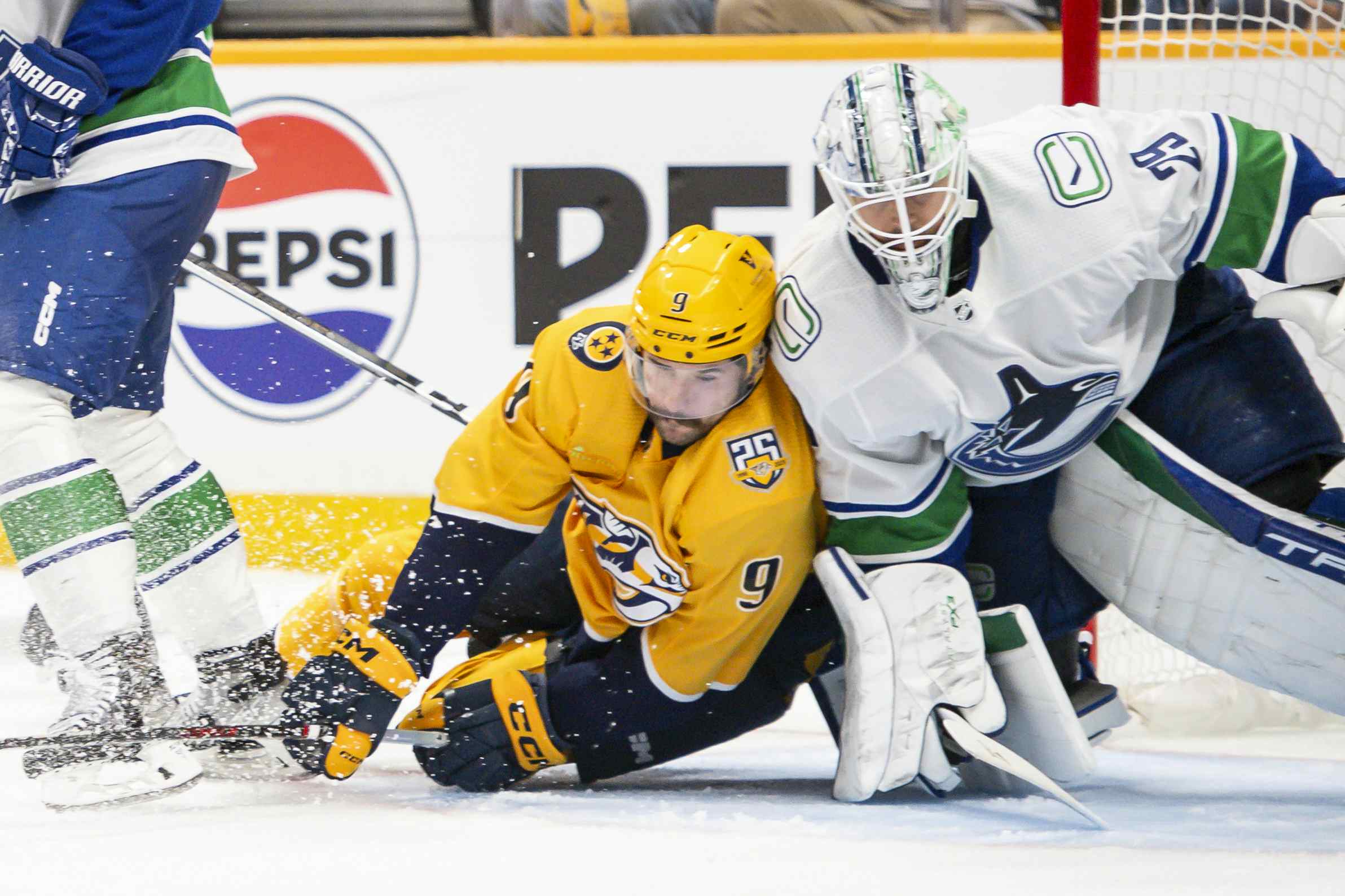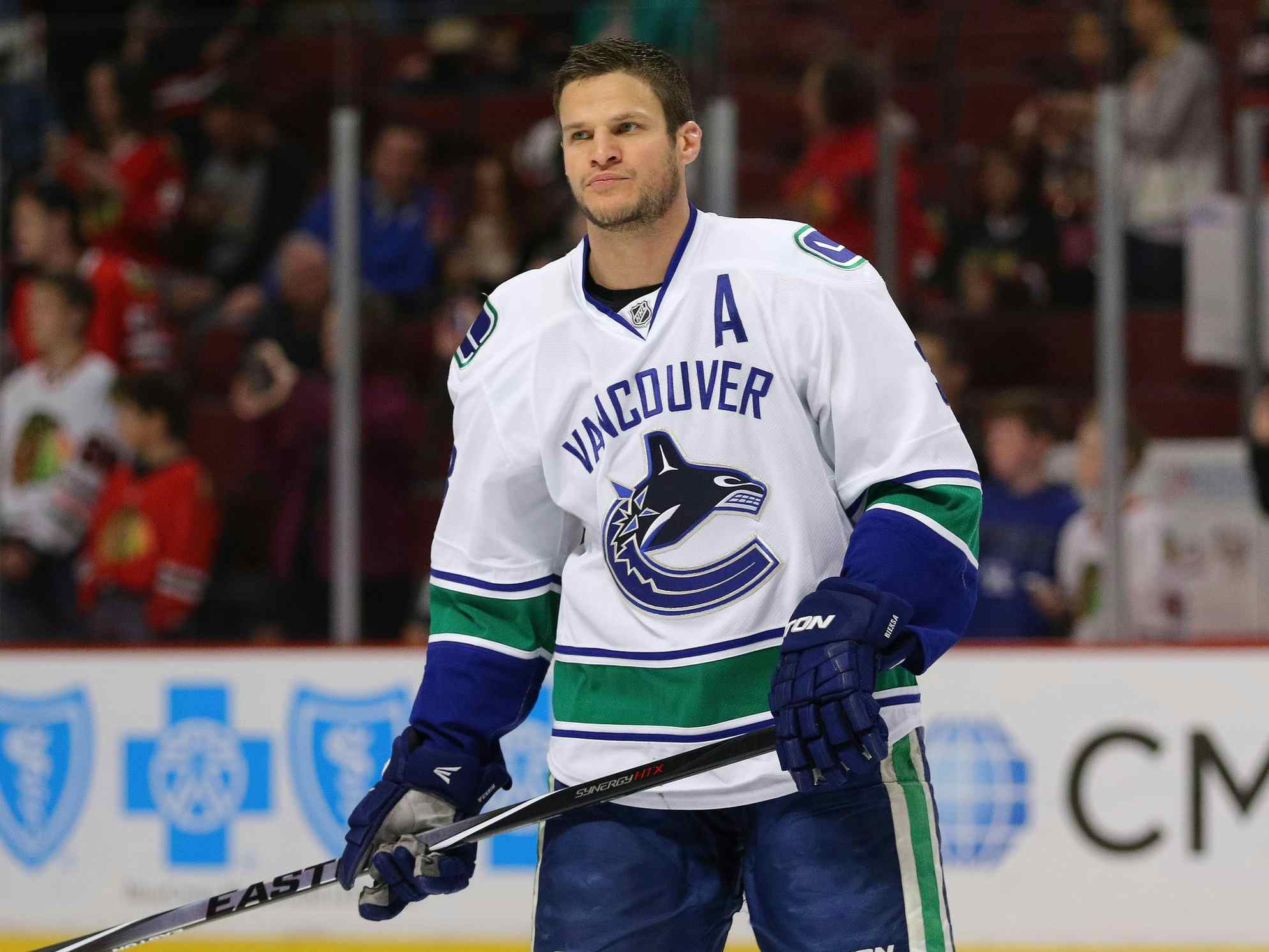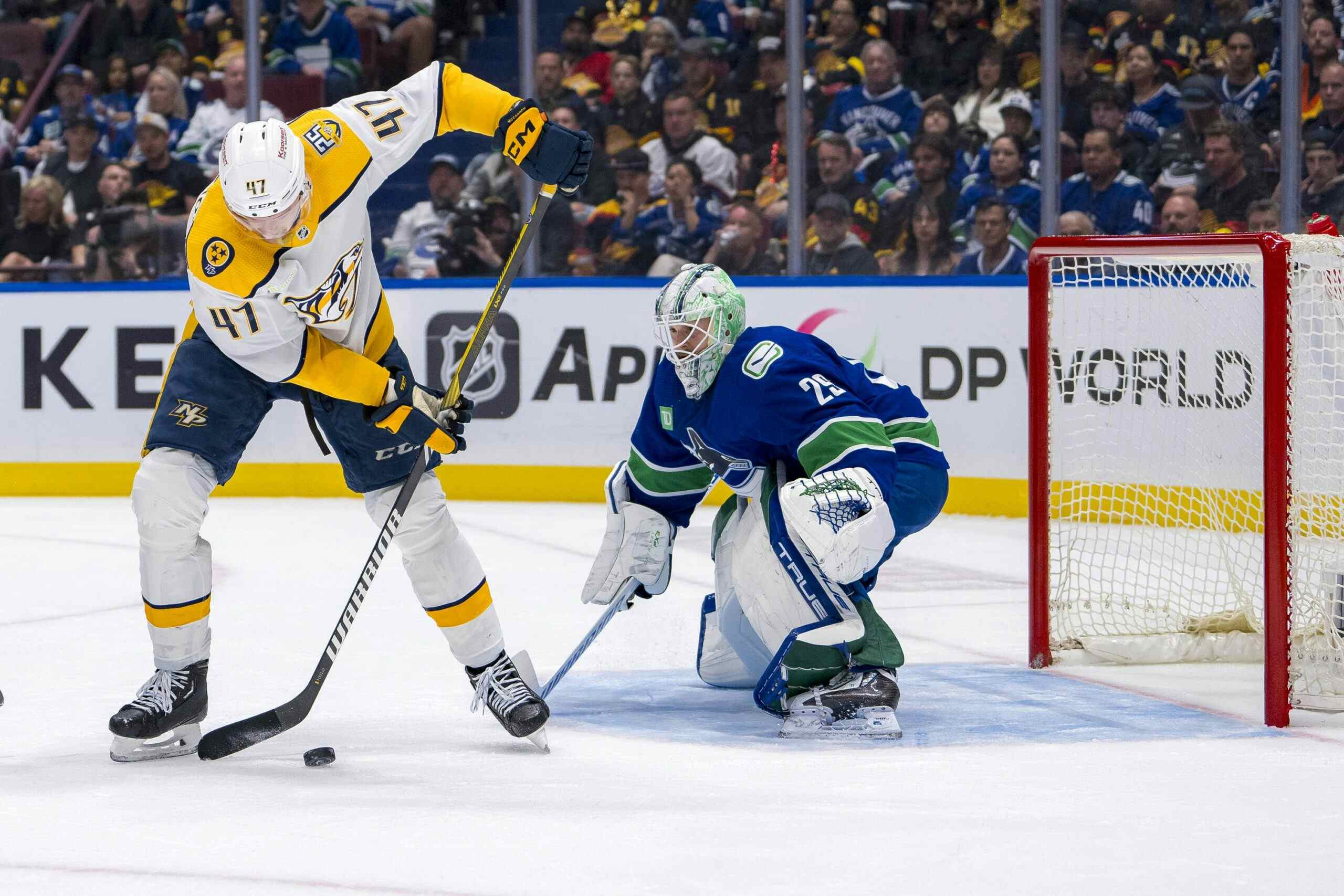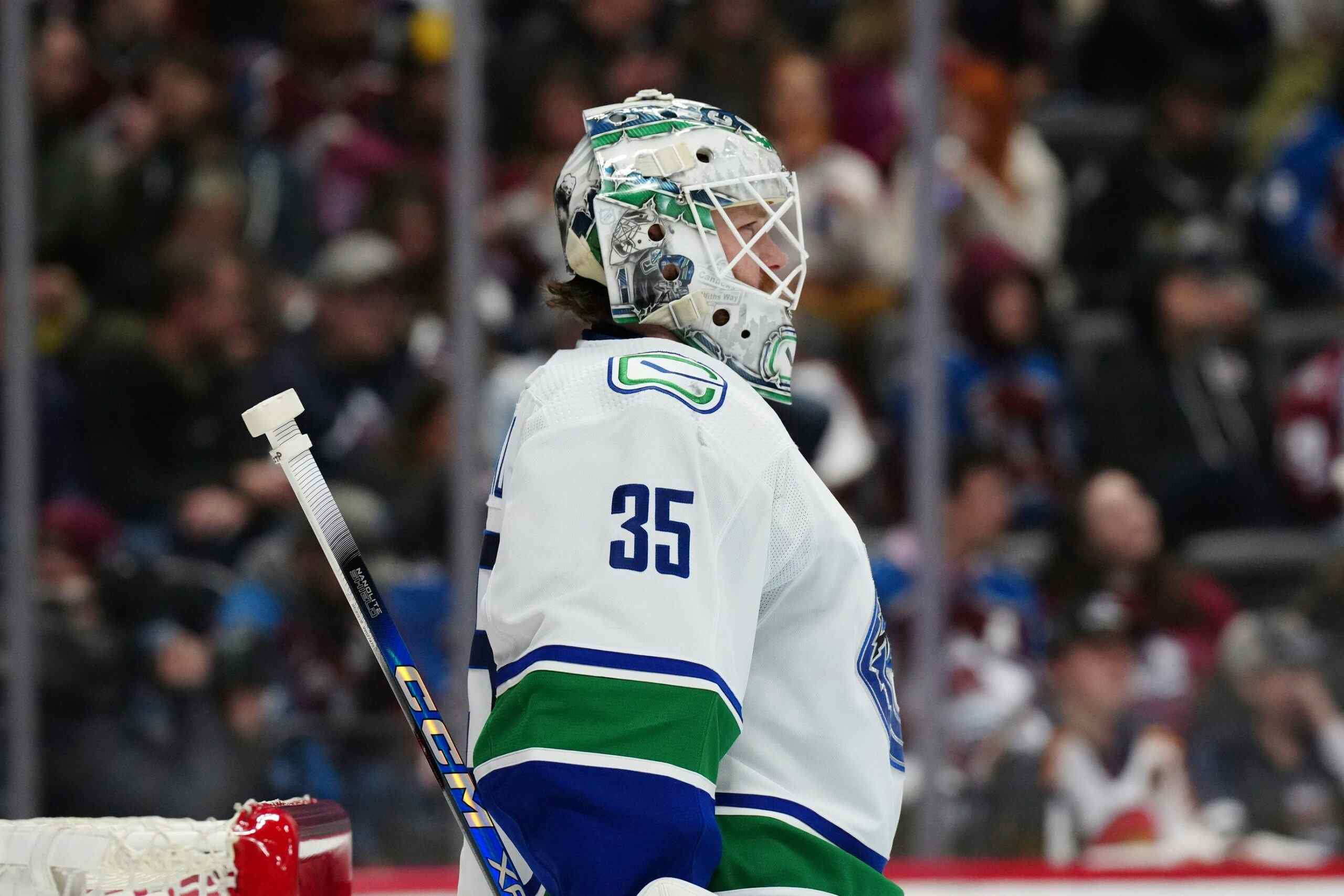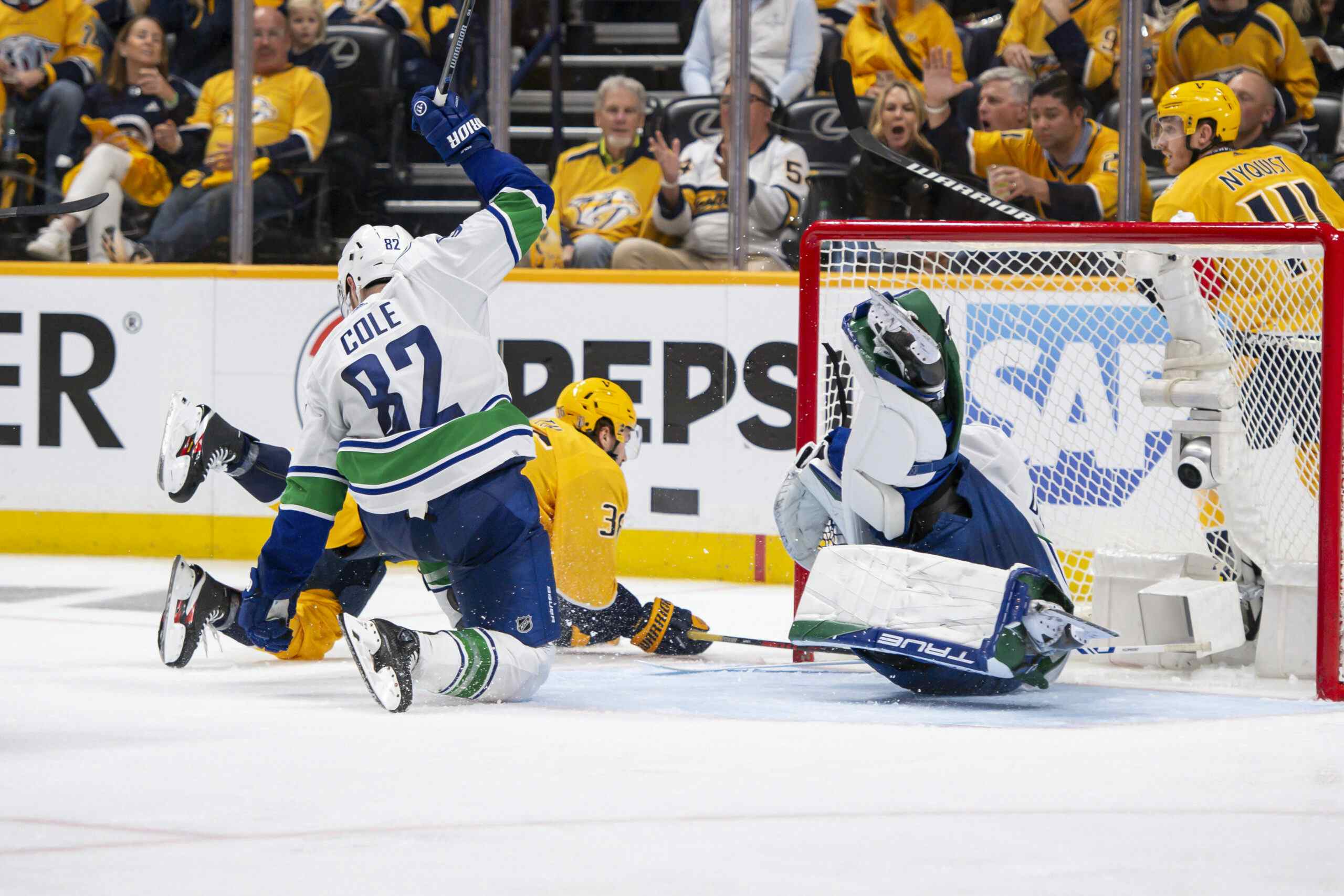JUNGLE B: ROAD TO THE NHL. PART TWO
By Jason Gregor
12 years ago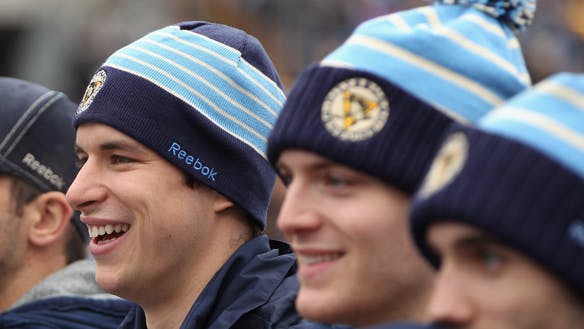
That’s Mark Letestu directly to the right of Sidney Crosby. In part one of Jungle B: Road to the NHL, Letestu gave some insight into his incredible, and rare, ascent up the hockey chain. From a 17-year-old in Junior B in Alberta (Junior C in Ontario), to three years in the AJHL, followed by one year at Western Mighigan and then signing a two-year NHL entry-level contract with the Pittsburgh Penguins; Letestu’s dream hit a snag in the AHL.
His first year of pro hockey wasn’t like he imagined. He started in the ECHL and then got into 52 AHL games, but for an offensive player a six-goal season was unacceptable. His coach, Todd Richards, didn’t mince his words at their end-of-season meeting and told Letestu he needed to be more competitive and improve his footspeed.
With only one year left on his entry-level contract, the summer of 2008 would determine whether he was going to continue his Cinderella ascent, or follow in the footsteps of many who didn’t have what it took to play in the NHL.
In part two of Jungle B: Road to the NHL, Letestu talks about the summer of 2008 and how an injury allowed him to get to know the greatest player in the NHL, Sidney Crosby.
JG: The summer of 2008. Did you get a personal trainer? Did something happen because in 2008/2009 you exploded – 24 goals, 61 points.
ML: No, the exit meeting was pretty direct that I needed to get better. I had one year left on my deal and it was do or die time. I came back to Edmonton and was training hard. It was something I had to address – my foot speed and maybe a body fat issue. There were some things I had to sort out off ice so we took care of that, came to Canada, and had a great showing. I had a really good rookie camp, but I still didn’t get an exhibition game. I don’t think I earned it the year before but as the year went on I got a lot stronger and my wife will tell you – we got engaged in November and that’s when it really took off. She would love to take credit for this.
JG: How did you improve your foot speed in the course of the summer?
ML: I think I just started training. The first time I started training hockey was when I was at Western Michigan, and I never really trained explosiveness or foot speed. Basically we did squats and bench press to see if we could look good with our shirt off. That was basically how it was before then and it was definitely more focused. That’s what it came down to that summer, that I had to get better and this was kind of my, didn’t feel like last crack, but shot at an NHL deal. If I didn’t have a good year, that opportunity wasn’t going to come around again, so it was something that I had to have. I was fortunate enough to have a really good opportunity with some good linemates, I gained a lot of confidence and we had a good year.
JG: Some guys could wilt under that pressure. How did you mentally turn that into a positive?
ML: Just the road that I came from. They don’t hand out entry-level deals to guys that play in Junior B, or 20-year-olds coming out of Junior A. It’s just something that, you don’t get a lot of breaks. So you don’t have a lot of people giving you positions, instead you have to really go out and earn them. You have to take opportunities and make the most of them. That was just another opportunity that I fortunately made the most of when it was in front of me.
JG: Where was your first NHL game?
ML: Funny story. The first time I ever got called up was in Columbus. I was taking the warm ups and my playing hinged on whether or not Sid could go. I was so excited, I made the phone calls home, I think my now brother-in-law had rented out Hudsons, and got the TV’s ready because it was my first NHL game. But Sid was ready to go, so I sat that one out. I got sent down the next day and I think I had to wait another week or two before finally playing. It was Boston, at home. I still remember looking over the red line and seeing Chara and thinking ‘this guy is huge, how am I going to play against this guy?’ But it was awesome, just to be on the ice. It felt like I made it and that was probably one of the better days of my life.
JG: That year you got your first NHL goal. Who was it against and where was it?
ML: First shift, at home, against the Buffalo Sabres. It was a two-on-one pass, Tyler Kennedy to me backdoor, and I beat Ryan Miller. It think it was 38 seconds in. It was awesome.
JG: Not bad, first NHL goal on Ryan Miller, one of the top five NHL goalies in the league.
ML: It was a good picture. It’s up on the wall right now so it’s always something I will remember. I could probably tell you all 12 guys on the ice at that time. I think there’s a shot of me on the bench afterward just looking down trying to catch my breath from all of the man screaming in the corner. It was fun. Hopefully there is a whole bunch more.
Yes, that’s right he said man screaming. I think that saying could catch on.
JG: The first game is obviously a huge moment for any player, but that first NHL goal, especially when you look at your path, playing Jungle “B” at 17, no scholarship until you are 20 and then scoring your first NHL goal against Ryan Miller. Did you feel like you belonged at that point?
ML: I felt like I made it. I felt like if I retied tomorrow I could be happy. I made it, I had scored a goal, I had made an impact on the league in some way; it was awesome, and all of that went through my mind on the bench. I had lots of time in between shifts when I was there, so I had lots of time to think about it. It was great. It was something I will always remember.
JG: You played 10 games in 2009/2010 and then this past season, you became a regular. You missed 18 games due to an injury, but you were a regular. Talk about the conversation that went on last October when you were told ‘Mark, you’ve made the team’.
ML: It wasn’t quite October, it was more like November, because Staalzie was coming back and he had a couple setbacks, but I remember Ray (Shero) came right into the weight room and said, ‘Coach and I would like to talk to you.’ Right away I’m like ‘great, I’m getting sent down, this is awful.” He must have seen my expression because he said, ‘no, it’s good stuff, just come on over. Mark, you can go look for a place. We are comfortable with you being here, and congratulations. It’s a good time, enjoy it with your family.’ That moment was another milestone where you are like, wow, I might be here for the rest of the season as long as I keep my play up. These guys believe in me, it was great.
JG: So you are a full-time centreman. You have Malkin,Crosby and Staal, so is the 4th line centre your focus heading into camp this year?
ML: Yah I mean, that’s the position I’m comfortable playing. Obviously with Jordan out this year I played middle a long time, most of the season. In his second game back, Sid went down, and then Geno goes down, so I got shifted all over the lineup and I got a lot of opportunity to play in different situations. With everyone healthy coming back to camp, I’d like to force the coaches hands into moving Jordan up into that second line (Malkin onto the wing), but I’m pretty sure they are comfortable with me on the 4th line. I think that’s something that is good about me; I think I’m pretty flexible, I can go up and down the lineup and contribute in a lot of different ways.
JG: Talk about the interactions with Crosby. How was that initial one?
ML: It was good. I tried not to be the guy to go to him, and be the geeky little fan and say, ‘Hi Sid’. He was great. He came over immediately and congratulated me on getting called up the first time. He was more than happy to come over and congratulate me on that. And this year, we were both injured at the same time so we got to spend a little time together.
JG: Any interesting stories?
ML: I guess the infamous water bottle. He blows it up with the backhand in practice, and I was on the ice for that and I got lots of his sick skills first hand. I got to see how hard he works and how hard he was working to come back, and it was kind of neat to be on the ice with him and see that kind of work ethic one-on-one.
JG: There was a lot of people who think it was staged, but you’re saying it wasn’t planned?
ML: No, it was us just rehabbing drills. It was our video guy that was in net so he didn’t score on an NHL goalie, but I had gone just before him and it was a shot. He blew the water bottle right up and if you listen, you can hear me in the background calling for a new water bottle.
JG: Not only are you in the NHL now, but you are getting one-on-one practice time with Sidney Crosby. Did you pick his brain on how to be a better centreman or get any tips on how to become better in the face-off circle?
ML: Not many. It seems like you’ve either got it or you don’t. Obviously there is some technique involved, but with Sid it seems like anything he wants to do, he can do. I think a year or two ago he decided he wanted to shoot the puck more, and he scored a whole pile of goals. He’s that gifted. As far as face-offs, that’s something I remember him being particularly bad at when he first started. I think it just shows how hard he works. He’s pretty honest with himself about what he can do and what he needs to get better at, and he addresses it.
JG: Can you give us a little insight into what it’s like being a teammate of Sidney Crosby? Is your bus always delayed 15 or 20 minutes like it was with Gretzky in Boys on the Bus?
ML: Sid goes out of his way to make sure everybody is happy. He does a great job with his fans, whether it is signing or spending a couple of seconds with a kid. We, as teammates, have no problem waiting for that kind of stuff. Obviously, we give it to him when he gets on the bus, but yah, he handles it well. I’d say being a teammate of Sidney’s is no different than anyone else. He treats everybody the same. He’s a kid; he’s two years younger than me. He’s pretty much a normal guy.
JG: What is his work ethic like? Most people say he’s the hardest working guy on the team. Do you see that at practice all the time and does that challenge you to say, ‘Here is the best player in the game, look at what he does after practice, I better be out there with him?’
ML: Oh yah, absolutely. He’s as driven as it gets, but when it comes to those generation franchise guys, they all seem to be that way, and he falls in line like any of the others. He’s just driven to work on his game to get better every day, and like you say, it’s contagious. When your captain, the best player, does stuff like that it just bleeds along the lineup and I think it shows. When he went down, when our big guys went down, we still managed to pull out fourth place. It’s his kind of influence, our coach’s influence; it’s an organizational influence right now that is going through the entire team.
JG: Was it scary watching him go through that to the point where he was seriously injured enough that he couldn’t do anything? Is it a little bit scary, maybe humanizing the game a little bit more for you?
ML: It can be. I always thought he was coming back. I didn’t realize it was that bad until they had to shut him down, and forced him to sit in a dark room and don’t do anything; it was that bad. I didn’t know the hit was that bad, it puts a face on things to see someone struggle with something and to see that nobody is untouchable. He’s the best player in the game and he goes down with one. It’s tough to see, especially the season he was on, the roll he was on, to get 50 points in 25 games or something ridiculous. It would have been a really special season, and to see that taken away was really tough.
JG: What did you think of the Steckel hit?
ML: I thought it was incidental. Sid didn’t see him coming, it didn’t look like Steckel tried to take his head off, he’s a big guy and he just ran into him. I thought it was incidental and the results were unfortunate.
JG: When Sidney Crosby gets hit at any juncture of the game, do you notice that is there an automatic "big brother" philosophy from guys on the bench?
ML: I think so, he’s your star player. Truthfully, he doesn’t get hit a lot. He gets his nose dirty, he gets in the big scoring areas, he’s illusive, he’s quick, and doesn’t get hit a lot. Even on that play, I don’t think a lot of us knew what happened, it was kind of away from the play and he had come back to the bench hunched over, and we weren’t really sure what had happened. I mean in that situation we weren’t really sure, but if someone takes a run at him there are definately people there to take care of him.
JG: Give me your thoughts of Matt Cooke. He is a good player, but is he, ummm, bipolar may be the wrong word, but do you see him switch that quickly in games?
ML: I think the term that is popular with him is he plays on the edge and he tends to go over it. Obviously the NHL seems to feel the same way with the suspensions. Like you said, Cooke is a really good player for us. He’s obviously very effective on the third line, he gets under people’s skin and it’s functional for us. He’s a good player, unfortunately, he gets suspended from time-to-time and it leaves a hole in our line up. If he could get that under control and play more games for us, he’d help us even more. Overall he’s a very good player for us.
JG: When he gets the opposition fired up, does he also get you fired up in a positive way because there is more emotion on the ice all of a sudden.
ML: Yah. Cookie is a game changer. Obviously, 12 goals last year, he’s not somebody that changes the game all the time with the offensive side of things. That’s the way he can affect the outcome of the game. Sometimes he might lose his mind on the other team and sit for two minutes, or sometimes he causes a penalty and Sid gets out on the power play. He’s a game changer, delivers clean hits from time-to-time and like I said, if he could stay on the edge and not go over, he’s more than an effective player for us.
JG: You are now one season into the NHL. 64 games, 14 goals, 27 points, you’ve gotten into some playoff action and you look at yourself right now as a bottom 6 forward. You didn’t get a lot of PK time last year, moving forward is that something you need to do to get more ice time?
ML: Yah, I think it’s something I need to do . A lot of bottom six guys that don’t penalty kill find themselves out of work. I’m always trying to find ways to be better. I think that’s a place that I can help. Obviously Max moving on to a different team opens up a hole, and that’s maybe somewhere I can step in and help on the penalty kill. Hopefully my face-offs give me an opportunity to be there, but ultimately that decision is up to Tony (Granato), and it’s up to me to prove in training camp and exhibition games that I’m worthy of that chance.
JG: Was that brought up in your end-of-season discussion? Did you get the opportunity to say ‘Hey guys, I’d like to be part of the penalty kill’?
ML: Our coaching staff is awesome in that regard. It’s obviously a two-way street. In the exit meetings they extended that chance for me to express how I felt about the year, and that was something I talked to them about – I wanted to get on the penalty kill, and with the guys coming back being healthy, you know the power play time that I got last year might not be there. To further my role, I need to hopefully get on the penalty kill and contribute in more ways.
JG: 55.4% on faceoffs last year. That’s one hell of a number. What’s the key to your face off success?
ML: Cheating. No it’s something that I’ve always been pretty good at. Leaving after the season before last, Ray said to me, ‘A right handed centreman is something we need, this is something we need you to focus on, someone in the dot who can provide some stability for us.’ It was something that going into training camp I wanted to prove that I could do; it was something I focused on throughout the year.
JG: Does it help when you go up against Crosby in practice?
ML: For sure, he’s a different body type. He’s as challenge from the left side, while Jordan’s big so he prepares you for guys like Paul Gaustaud that are up there (faceoff %). We try to mix it up, who we are going against, but there are guys with lots of knowledge about it. Craig Adams is a guy that’s been around the league, and I take some advice from him on tendencies on guys, we are right handed. You ask Sid, Staalzie, they have nothing but information for you. You try to be a sponge and pick up on guys tendencies.
JG: Do you study other guys tendencies, is it just word of mouth or do you sit down in the film room and break down the opposing team’s faceoffs?
ML: Not the video so much, you know everybody is a little different. You get into the circle with someone where you might try different moves and do something different with the puck. Craig is somebody that sits beside me in the room and I pick his brain every time about what to do, especially when the big faceoff guys come to town, whether it is Staal (Jordan), Konopka or Gaustad.
JG: Give me your thoughts on 24/7, the HBO series. Hockey fans loved it. Bruce Boudreau became infamous for the F-Bombs he was dropping all over the place. Was it a little intrusive having the cameras around or did you guys like it?
ML: No, the camera crew was great. We had the same camera crew from the start, and they were a bunch of good guys. They seemed to be curious about what the hockey world was like. It seemed like what they mostly worked on boxing 24/7’s, and I think they had a Jimmy Johnson thing they did before so it was their first introduction to hockey. It was good. I wish I had a bit more camera time. They showed highlights from a Toronto game where I had a great goal, didn’t make it on, even got the shovel after the game for being the unsung hero, but I still didn’t make it on. It was all about Sid, all about Geno. The quiet kid in the corner gets no time except for the hotel room prank.
JG: That was your hotel room?
ML: Yah my hotel room, Ben Lovejoy and I got back from a nice dinner and found our hotel room furniture nicely prepared for us in the hallway. So it was quite the experience.
JG: How long did it take you and Lovejoy to put it back in?
ML: There was no help, but we figured we’d be big boys about it and just move the mattresses and the TV back in. That’s all we needed. The hotel security wasn’t too happy about it and they ended up moving the rest back in.
JG: So you just left the dressers and everything else in the hallway?
ML: We don’t need them. It’s not like I’m going to fold my clothes and put them in the dresser.
JG: What do you do with your suits on the road? How many do you take on a road trip? Are you an iron guy or a put the suit on a hanger in the bathroom and hope that the steam takes the wrinkles out?
ML: I’m a shower guy and it’s usually one suit per game. It seems like if you re-use the suits guys get on you. It’s something that they seem stingy about, but I’m a guy that gets to the hotel room, throws them up in the shower and hopefully it wrinkles them out. Sometimes it does and sometimes it doesn’t. Usually it’s one suit a game.
JG: Are you a superstitious guy?
ML: Can be, not crazy. There are guys crazy about it, but if I have a good game and I have some chicken parm, I will have it next time.
JG: Who is the most superstitious guy on your team?
ML: Sid. Hands down.
JG: What are some of his quirky superstitions?
ML: One he always flips a roll of tape to his stall. Then he’s got his shoes, he’s got to flip them over and catch them in each hand. He’s goofy. He’s weird. (laughs)
JG: So he sits in his stall and flips his shoes into his hands?
ML: One into the left hand, one into the right hand.
JG: What if he drops it?
ML: He’s got to do it again. Then there are times when he’s been throwing tape at his stall – six or seven tries if it is a tough one, with the foamie cover that bounces. If it doesn’t sit on there right, the guys keep throwing it back and he’ll keep throwing.
JG: I assume that when you have the best player in the game, whatever his superstitions are, whether you mock it or not, you better make sure he does it, because your chance of success increases?
ML: Exactly. When he was on that run, guys made sure we were out of his way. We said, ‘Do what you need to do. Have that goofy mustache on your face, just do it. As long as we are winning and you are scoring, we are all happy.’
JG: What about warm up? Are you a superstitious team? A lot of teams have the same routine. Certain guys go out in a certain order, and as a rookie how do you find out where your place in line is?
ML: It seems like they kind of let you find your own place and then that’s it. That’s your place, you stay there. I always went out after Brooks (Orpik) and I always shot in the half moon. The guys would pass the pucks, and being the young guy I was always last. Maybe next year I will move a bit further up in the line up, that would be exciting.
JG: You wouldn’t want to be the last guy in the shoot around every time.
ML: No, because the goalies don’t seem like they try then. You just shoot it into their glove and they don’t give you the honest effort when you are one of the last shooters.
JG: So you have to get into the top half?
ML: Yah and it seems like, you know, goalies, you have to keep it waist down, if I shot it over the waist I usually got a talking to.
JG: Is Fleury a little sensitive that way?
ML: Fleury not so much, Johnny (Brent Johnson) can get sensitive.
JG: You probably don’t want to drop the mitts with Johnson right now. He’s the toughest goalie in the league.
ML: Absolutely not!
JG: He was the heavyweight of your team for a few weeks.
ML: He’s got long arms. Those couple games with the Islanders, circumstances what they were, Brent did well. In the first case he was trying to stand up for something, and usually it would be a fight and it would be over with; but he knocked the guy out. What do you do! Too bad. Then it seemed they wanted revenge the next game and the rest is history. It kind of got crazy. Brent seemed was in a couple of fights in a short amount of time, and he handled himself pretty well. He earned lots of respect in our room.
JG: He might have some competition for the heavyweight belt this year with MacIntyre being signed.
ML: That’s exciting. We lost Eric (Godard) to Dallas, a real tough guy. We’ve got a really tough guy coming. I’ve seen him in the American League go with a couple of guys and quite frankly, he’s too tough for that league. So, he’s an exciting guy to have around. Obviously a policeman for us and hopefully he’s around all year.
JG: Having Crosby and Malkin, two 100-point guys, and Staal – you don’t have a lot of physical wingers – did you ever sense that teams tried to take liberties with you.
ML: It didn’t seem like it. Last year, we had a pretty tough team with Asham and Engelland. We had and "Functional Toughness", guys who can play and who are tough. Derek had a couple of good fights last year, but to have that deterrent around, somebody like Steve who is a top-tier enforcer, I think will keeps guys in line. Knowing they are going to have to deal with him is a good deterrent.
JG: What are you working on this summer to increase your role as a member of the Penguins next year?
ML: For me, it’s always my skating. It’s something I come back to. I’ve been able to think the game pretty quickly, but I just – it’s stride length and skating that isn’t there yet. It’s something that’s separating me from maybe having 20 goals, and having that step; it’s something I need to have.
Letestu’s story isn’t finished.
He signed a two-year extension back on January 19th, and then he and his wife, Brett, had their first child three weeks ago. Letestu has been on the ice most of the summer trying to get quicker and will be going back to Pittsburgh August 24th to get ready for camp.
He has beaten the odds to make it to the NHL, but he realizes that keeping his job will be just as difficult, if not more, moving forward.
Based on his determination, I wouldn’t bet against him carving out a nice career.
Recent articles from Jason Gregor

